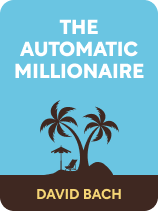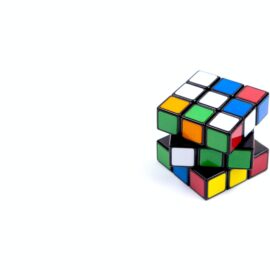

This article is an excerpt from the Shortform book guide to "The Automatic Millionaire" by David Bach. Shortform has the world's best summaries and analyses of books you should be reading.
Like this article? Sign up for a free trial here .
Are you considering taking out a mortgage? What are some things you should take into account when choosing your mortgage repayment plan?
Shopping for mortgage plans and trying to get your head around the legal terms may not be your idea of fun, but it’s essential to hunting down those bargains. To get the best deal, you must do your due diligence and research mortgage providers to compare interest rates and figure out how much you can afford to spend on a home.
In this article, we’ll take a look at some things you should take into account when choosing your mortgage plan, and discuss the options available to you.
Choosing a Mortgage Payment Plan
In The Automatic Millionaire, Bach claims that you should be able to spend between 29-41% of your gross income on housing expenses—which include your mortgage, taxes, and insurance. Aim for the minimum if you still have debts to clear and more if you don’t have any debts to pay off. For example, if your salary is $40,000 a year, you can afford to pay from $11,600 a year ($967 a month) to $16,400 a year ($1,367 a month) towards all of your housing expenses.
(Shortform note: In addition to Bach’s suggestions, Pape claims that it’s crucial to also factor lifestyle changes into your housing expenses before you decide to buy a house. For example, if you have children, your expenses will increase significantly—you’ll either have to pay for childcare or reduce your working hours to care for the children, and this will impact your ability to keep up with mortgage payments.)
| Mortgage Resources and Advice While Bach recommends some mortgage rate resources in the book, many of these are now out of date. The following list of recommended mortgage loan providers (2021) provides the latest expert recommendations: Quicken Loans SoFi LoanDepot New American Funding Reali Citi Mortgage Guaranteed Rate Chase Busey Bank PennyMac In order to receive an accurate quote from these resources—loans are tailored to your credit history and what you can afford—you’ll find it useful to gather the following documents before beginning your research: Tax returns Proof of income Bank statements Investment statements including savings and retirement plans Debt records including student loans and car loans Recent utility payment statements Renting history Gift letters to indicate funds that have been gifted towards your home purchase Child support or alimony documentation Bankruptcy records When you research interest rates, make sure you also factor in the following costs as they can add a substantial amount to your overall loan: Application fee Credit report fee—non-negotiable Appraisal fee—non-negotiable Underwriting fee Property taxes—non-negotiable Government fees—non-negotiable Service fee |
Pros and Cons of Popular Mortgage Plans
There are multiple mortgage plans to choose from and each comes with its own advantages and disadvantages:
- Fixed-rate mortgages: These mortgages’ interest rates stay the same for the full loan period. (The loan period is usually either 30 years or 15 years.) This protects you from fluctuations in the economy and keeps your monthly payment consistent. However, you’re also locked into your plan for a long period, unless you remortgage.
- Variable-rate mortgages: These mortgages’ interest rates stay the same initially for an agreed period, then fluctuate based on the economy. These plans tend to offer the lowest initial interest rates, making your initial mortgage payments lower. However, if interest rates increase following your initial fixed-rate period, you may struggle to make your payments.
Other Common Mortgage Plans
Bach’s advice in this section is somewhat minimalist. In addition to the fixed-rate and adjustable-rate mortgages that Bach explores, there are six other common mortgage types that may interest you and better fit your financial situation:
- Conventional mortgages: For primary or secondary homes and investment properties. Interest rates are higher but the overall cost of the plan tends to be lower. Look into this if you have a strong credit history, a stable income and employment history, and the funds to put down at least 3% as a down payment for the home you want.
- Government-insured mortgages: For borrowers who haven’t saved for a down payment, or meet certain income limits. Look into this if you’re worried about your credit history and your ability to put down a down payment.
- Jumbo mortgages: For homes in expensive locations. Interest rates tend to be lower than they are for conventional loans because you need to put down a large payment. Look into this if you have an excellent credit history, a high income, and the funds to put down at least 10-20% as a down payment for the home you want.
- Construction loans: For people who want to fund the construction of their homes. Look into this if you want to build your own home and can afford to pay a high down payment.
- Interest-only mortgages: For people who are happy to pay only towards their interest, not their equity, for the first few years. Look into this if you want to keep your mortgage payments low for a fixed amount of time (five to seven years) but can commit to higher payments after this period.
- Balloon mortgages: For people who want a short mortgage and can afford to pay a large lump sum after a few years. Look into this if you want to commit to a short mortgage (seven to ten years) and then make a large payment at the end of the period to clear the balance.

———End of Preview———
Like what you just read? Read the rest of the world's best book summary and analysis of David Bach's "The Automatic Millionaire" at Shortform .
Here's what you'll find in our full The Automatic Millionaire summary :
- A simple but powerful action plan for you to quickly automate your finances
- How to grow your finances with just a few dollars a day
- An exploration of why people fail to prepare for their financial futures






